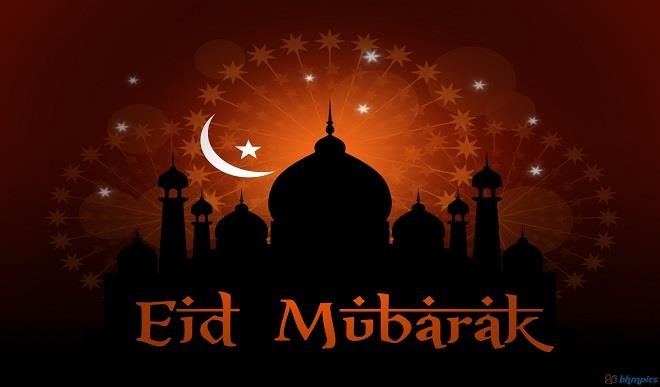
This year’s Eid ul-Kabir holds in Nigeria in two days’ time, Monday September 12, equivalent to 10th Dhul-Hijjah 1437AH. It is a religious festival by which Muslims are required as a rite to offer animal sacrifices to commemorate the initial offering made by Prophet Ibrahim (AS). Since then, it became a religious practice for Muslims who have the means to offer sacrifices, annually, on the 10th day of the Islamic lunar month of Dhul-Hijjah.
The Sunnah of the Prophet (SAW) teaches that those that are able to offer sacrifices, men and women, on the occasion of the Eid ul-Kabir should eat out of the meat and also give some portions of it to others. While some scholars fix two-third (2/3) of the entire meat as the portion to be shared out, others opine that the proportion is not mandatory. The most important thing is that the person who made the sacrifice should (along with his family members) eat out of it and give part of it to relations, friends and neighbours. If sharing fresh meat would be a burden to the recipient(s), it is preferred that the meat is roasted, fried or cooked before it is shared.
The act of sharing the Dahiyyah meat with others symbolises the will to give up some of our own bounties not just to help those in need but also to strengthen bonds of friendship. If we recognise that Allah (SWT) provides for His servants, then we should have no problem sharing our possessions with others. Overcoming the common grievances we hold against one another which impede mutual co-existence is the ultimate spirit in sacrifice. Every act of sacrifice nourishes and increases our faith for it transforms a verbal confession and a mental conviction into a living reality. Sacrifice reinforces the quality and our ability to be patient just as perseverance increases our capacity to sacrifice. Sacrifices bring us nearer to Allah. It makes us stronger and the stronger we are in faith, the greater our will to make sacrifices.
Sacrifice actually goes beyond offering an animal. Allah (SWT) states in Qur’an 22:37: “It is not their meat nor their blood that reaches Allah; it is your piety that reaches him…” The reward promised by Allah (SWT), not the quantity of the meat available for consumption, should be the ultimate of every believer who offers the Dahiyyyah sacrifice. That, indeed, explains why slaughtering a goat on the occasion of Eid ul-Kabir has more reward than slaughtering a cow and even a camel.
In the Maliki School of Islamic jurisprudence, the reward for Dahiyyah (Layyah in many Nigerian languages including Hausa) is according to the type of animal offered in the following order of preference beginning from the most preferred to the less preferred: un-castrated ram; then a castrated ram; then a sheep; followed by an un-castrated he-goat; then a castrated he-goat; then a she-goat; followed by a bull; then a cow; followed by a male camel; then a female camel. However, the reverse (in the order of preference) is the case for those on pilgrimage to Makkah because the object of sacrifice in hajj (called Hadyah) is to provide plenty of meat for the underprivileged. On the other hand, the intent of sacrifice in Eid ul-Kabir in the case of Muslims who are not on pilgrimage is to taste and enjoy the best of meat.
Given the recession in which Nigeria’s economy is officially and practically passing through, some people are unlikely to offer the Dahiyyah sacrifice this year. Many others may offer sacrifices of animals that Islamic literature would describe as under-aged. It is important therefore to note that there is age limit set aside by Islam for every category of slaughter-animal on the occasion of the Eid. According to Abdullahi bn Abi Zayd al-Qayrawaniy, author of the famous book of the Malikiyyah school, Ar-Risala; it is required that a ram or sheep should have attained a year or at least eight months. A goat is expected to have entered its second year. A cow should have entered its fourth year and a camel should not be less than six years of age. It is not right to use a sick, emaciated or blind (partial or full) animal that has one or other deformities for the sacrifice. A slaughter-animal with a broken horn or split ear(s) should not also be used for the Dahiyyah (sacrifice). Maliki scholars opine that the one with a broken horn can be used if no blood gushed forth from the injury.
One of the principles of Dahiyyah requires Muslims to offer their sacrifices only after the leader (Emir, Chief or Imam) of the community in which they reside has slaughtered his sacrificial animal. Anyone who therefore slaughters his animal before his community leader does so would be considered to have made no sacrifice. However, if one resides in a place where no such leaders exist, he is advised to delay his slaughtering until when presumably the leader in the community nearest to him would have slaughtered his animal.
Believers are free to slaughter their animals within the stipulated three days (10th, 11th and 12th of Dhul-Hijjah) which in practical terms begins on Monday September 12 and ends on Wednesday September 14. However, the first day (10th Dhul-Hijjah), is preferred over the succeeding two days (i.e. 11th and 12th Dhul-Hijjah). The slaughtering on each of the days is preferred before sunset. Anyone who slaughters his animal at night shall have made no sacrifice. If for any reason (including loss of the animal intended for the sacrifice) one was unable to make the slaughtering before sunset, it is recommended that the slaughtering be postponed until the following morning. It is not permitted to sell anything out of the slaughter-animal; not even the hide or the waste products of the animal.
Let us strive to truly live to the expectations of the spirit of sacrifice that the festival of Eid ul-Kabir stands for, including altruism, tolerance, and kindness. Happy Eid ul-Kabir! Kullu Aamin Wa Antum Bi Khairin!!
Fasting on Arafat Day:
The Sunnah of the Prophet (SAW) recommends that Muslims who are not on pilgrimage to the holy city of Makkah should observe voluntary fast on the Arafat day, which this year, comes up tomorrow Sunday September 11. May Allah (SWT) grant us the strength to observe this voluntary fast; and may it be accepted when we observe it, amin.

 Join Daily Trust WhatsApp Community For Quick Access To News and Happenings Around You.
Join Daily Trust WhatsApp Community For Quick Access To News and Happenings Around You.



